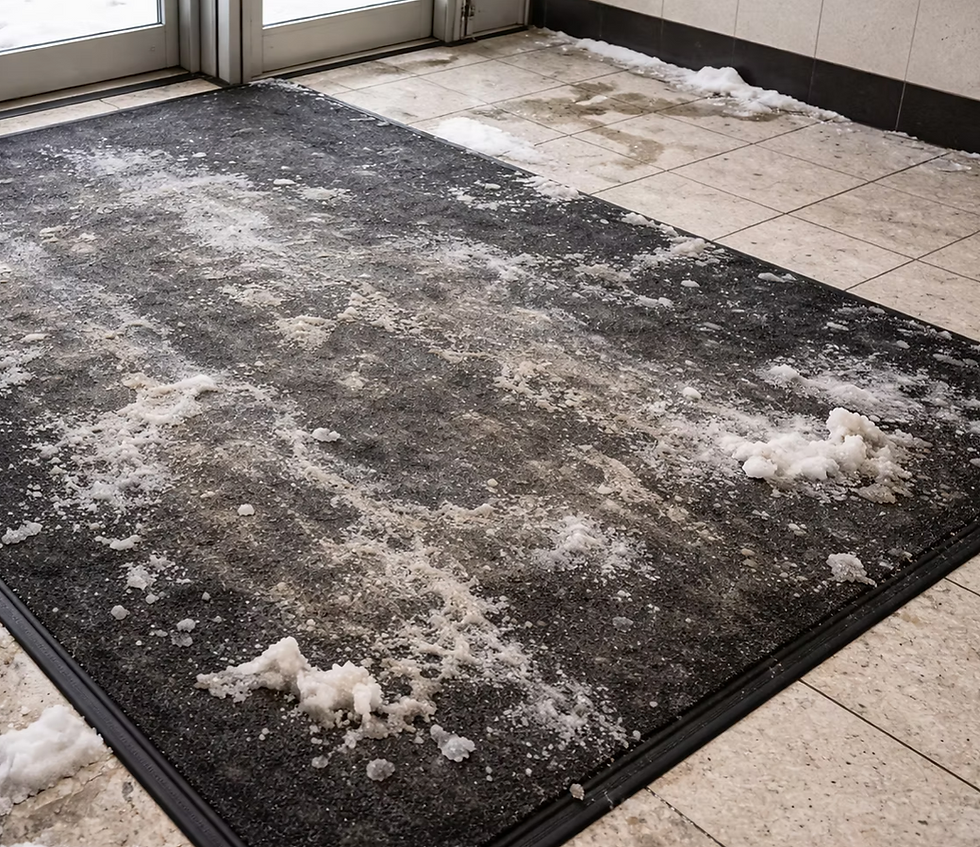The Spray Bottle is Partly Responsible for the "Sick Building Syndrome"
- Karl Bedard

- Oct 14, 2021
- 3 min read
One morning, you go to work as usual. Suddenly, your nose begins to congest within a few hours at the office. While exchanging with your colleagues, you end up wondering about possible allergies, although you have never had them before. At lunchtime, you head to the nearest drugstore...

You may have just contracted a small virus such as a cold or the flu. But it could also be that your work environment is the cause of your discomfort. Why is this? Simply because the employee who does the housekeeping in your building uses a spray bottle to clean!
The contamination process
What work technique does the custodian utilizes? Most of them will spray the product directly on the furniture, for example, without being aware of the short or long-term health consequences that may arise over time. Indeed, vaporizers tend to disperse volatile organic compounds (VOCs) into the air ducts.
What happens next is quite obvious: these pipes blow out the fumes released by the product when it is vaporized. The consequence? Some people's immune systems react less well than others. They end up with congestion and/or runny nose or eye irritation. These are not life-threatening symptoms, but they do affect our physical functioning and the quality of our work life.
A Norwegian study shows that long-term use of spray cleaning products leads to a significant decline in lung function due to mucosal irritation. The researchers based their analysis on the respiratory capacity of more than 6,000 middle-aged women working in the cleaning industry over a period of 20 years.
The danger of volatile organic compounds
Beware of those who do not believe in the dangers of volatile organic compounds on humans, when they can be found in so many elements with which we are in contact everyday such as food, detergents, cosmetics, plastic and fabrics. In short, these particles are all around each of us on a daily basis without us even being aware of it.
According to researchers, in the past 20 years, the number of reported cases of certain diseases such as leukemia, cancer, asthma and brain tumors has doubled, and in some cases tripled.
Did you know that over a period of 70 years, between the year 1930 and 2000, the worldwide chemical production increased 400 times? In terms of numbers, this means that chemical production has increased from one million tons to 400 million tons! We all agree that this is enormous.
« THE SICK BUILDING SYNDROME »
What can be done to avoid making employees sick? Instead of a spray bottle, use a pouring spout to apply the product directly to the cloth. This method avoids releasing fumes into the air. Or better yet, use the pre-soak method! With this method, cross-contamination is reduced by using all 4 sides of the cloth and by the fact that the microfiber is laundered after use.
At first glance, this reaction to household cleaning products may seem trivial, but it is more serious in certain situations. An individual can develop what is called "Sick Building Syndrome". This is a less frequent case that can become fatal. The symptoms related to this disease are similar to those mentioned above, but advanced medical tests must be performed to verify the severity of the disease.
Products to avoid
Scented products such as incense and room fragrances should not be used to avoid causing any reaction in employees. Bleach should also be avoided; a recent study in Europe concluded that frequent use of bleach promotes the development of a pathology that affects the bronchial tubes and causes breathing difficulties. Another Canadian study conducted with children under 3 years of age, reveals a clear association between asthma and early exposure to common household cleaning products. One can only wonder: what about repeated exposure to industrial products?
In short, the recommended alternative is to opt for organic and non-toxic products without spray bottles, regardless of the model. Everyone's health will be better off!





Comments